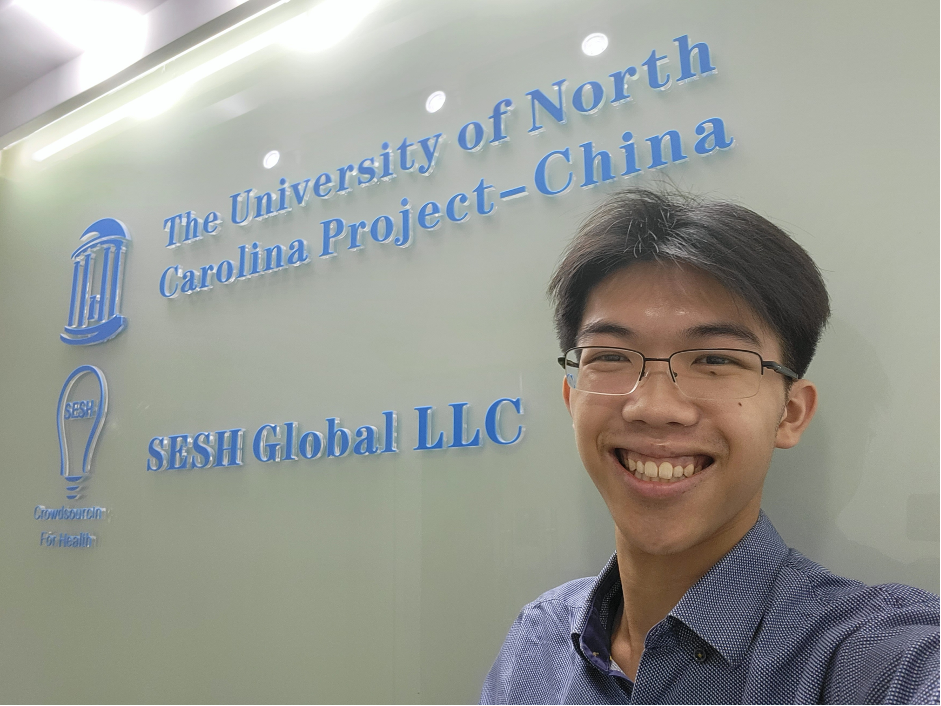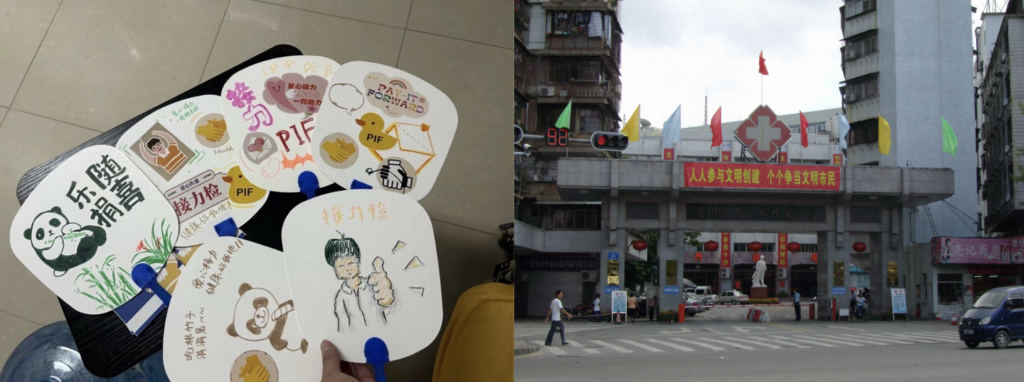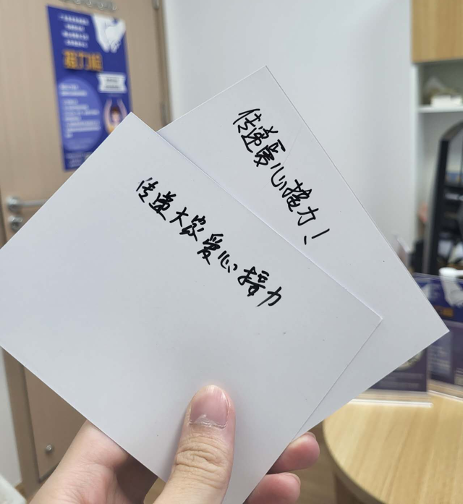As an undergraduate studying health policy and management, Dorian Ho‘s summer internship with UNC Project-China, a collaboration between the Institute for Global Health and Infectious Diseases and Sesh Global, co-directed by Joe Tucker, MD, PhD, and Weiming Tang, PhD, gave him the chance to expand his worldview and contribute to novel research in Guangzhou, China.

Ho joined the PIONEER project team, a randomized controlled trial evaluating pay-it-forward and community engagement on gonorrhea and chlamydia test uptake, among men who have sex with men (MSM), in six Chinese cities. Pay-it-forward (PIF) is a novel approach that provides free STD tests for MSM and encourages donations to support other MSM. This intervention includes a financial nudge (free testing) and a social nudge (handwritten postcards from other local participants). Previous studies have shown PIF interventions are associated with a substantial increase in test uptake compared to standard-of-care (in which men pay for their tests out-of-pocket).
“I was drawn to this research because of its emphasis on social innovation, robust community input, and patient empowerment in health delivery. With the trial in its pilot stages, I joined the fieldwork team in conducting site feasibility checks, piloting the intervention across seven trial sites, and monitoring recruitment to ensure intervention fidelity.”

Over two months, Ho saw how implementation varied across public hospitals and community-based organizations in Jiangmen, Zhuhai, Huizhou, and Foshan. He says busy hospital workflows, older patient populations, differences in regional languages (ex. Cantonese in Foshan, Hakka in Huizhou), and varying provider knowledge and enthusiasm for the intervention presented implementation challenges.

“While working with the fieldwork team to develop site-specific solutions that maintained fidelity and accounted for contextual factors, I learned how intervention efficacy cannot be assessed independently of intervention context.”
Outside of fieldwork, Ho worked on writing a qualitative manuscript using thematic analysis to consider a mechanism for pay-it-forward. He brushed up these skills by participating in a write-o-thon, an inaugural two-day event organized by SESH Global to support academic writing. He also also contributed to screening and data extraction for a rapid evidence synthesis of adolescent HIV interventions for a collaborative UNICEF/WHO/UNAIDS Blueprint project.
“These projects broadened my understanding of the current interventions used in STD prevention and the potential for pay-it-forward and other participatory approaches to address needs. I would like to thank my colleagues at the Institute for Global Health and Infectious Diseases, SESH Global, and Dr. Gifty Marley, for the opportunity to expand my worldview and skill set as a global health researcher this summer. I look forward to continued collaboration.”
